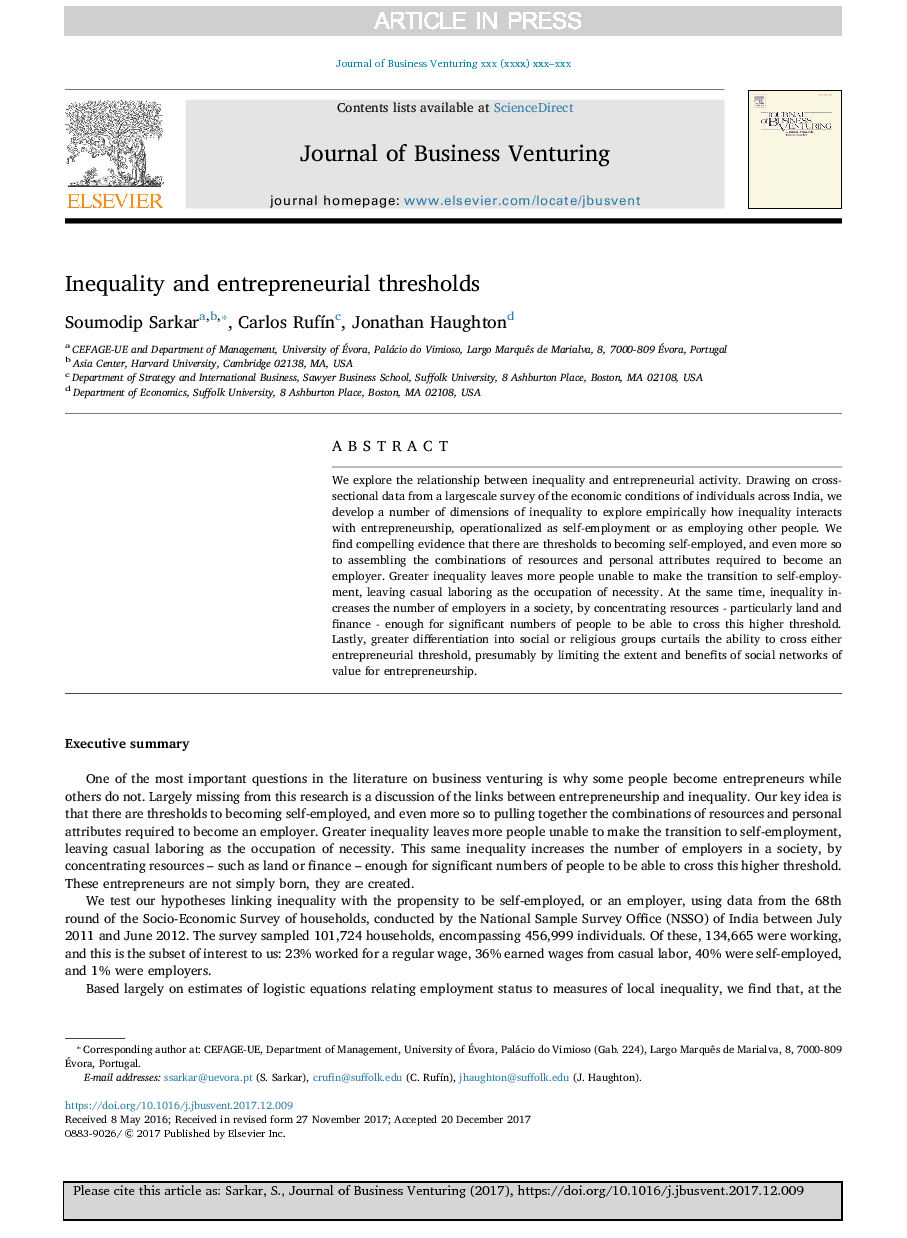ترجمه فارسی عنوان مقاله
نابرابری و آستانه کارآفرینی
عنوان انگلیسی
Inequality and entrepreneurial thresholds
| کد مقاله | سال انتشار | تعداد صفحات مقاله انگلیسی |
|---|---|---|
| 112590 | 2018 | 18 صفحه PDF |
منبع

Publisher : Elsevier - Science Direct (الزویر - ساینس دایرکت)
Journal : Journal of Business Venturing, Volume 33, Issue 3, May 2018, Pages 278-295
ترجمه چکیده
ما رابطه بین نابرابری و فعالیت های کارآفرینی را بررسی می کنیم. براساس داده های مقطعی از یک نظرسنجی وسیع از شرایط اقتصادی افراد در هند، تعدادی ابعاد نابرابری را برای بررسی تجربی در مورد چگونگی نابرابری در تعامل با کارآفرینی، که به عنوان خود اشتغالی یا به عنوان استخدام افراد دیگر عمل می کند، توسعه می دهد. شواهد قانع کننده ای وجود دارد که آستانه ای برای خودکفایی وجود دارد و حتی بیشتر به جمع آوری ترکیب منابع و ویژگی های شخصی مورد نیاز برای تبدیل شدن به یک کارفرما. نابرابری بیشتر باعث می شود افرادی که قادر به گذر از خودکفایی نیستند، به عنوان مشاغل ضروری کار می کنند. در عین حال، نابرابری تعداد کارفرمایان در یک جامعه را افزایش می دهد، با تمرکز منابع - به ویژه زمین و مالی - به اندازه کافی برای تعداد قابل توجهی از مردم قادر به عبور از این آستانه بالاتر. در نهایت، تمایز بیشتر به گروه های اجتماعی یا مذهبی، توانایی پیروی از آستانه کارآفرینی را کاهش می دهد، احتمالا با محدود کردن میزان و مزایای شبکه های اجتماعی ارزش برای کارآفرینی.

